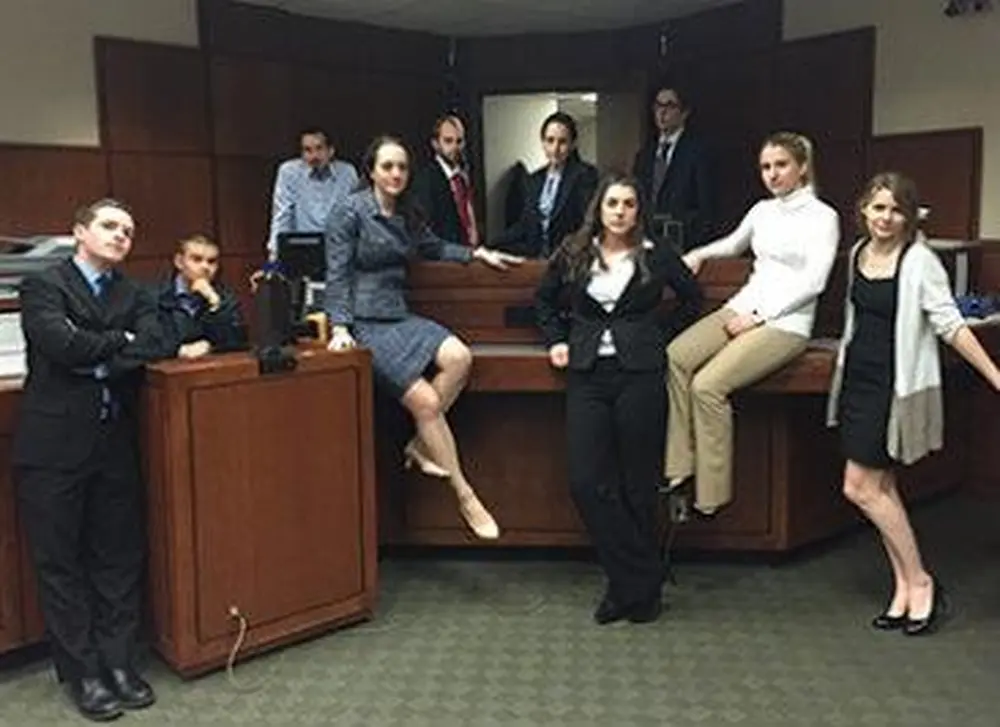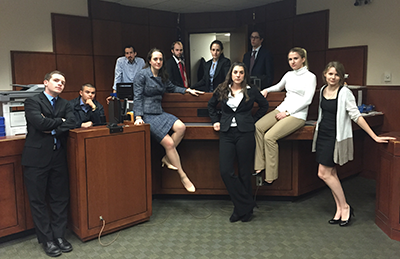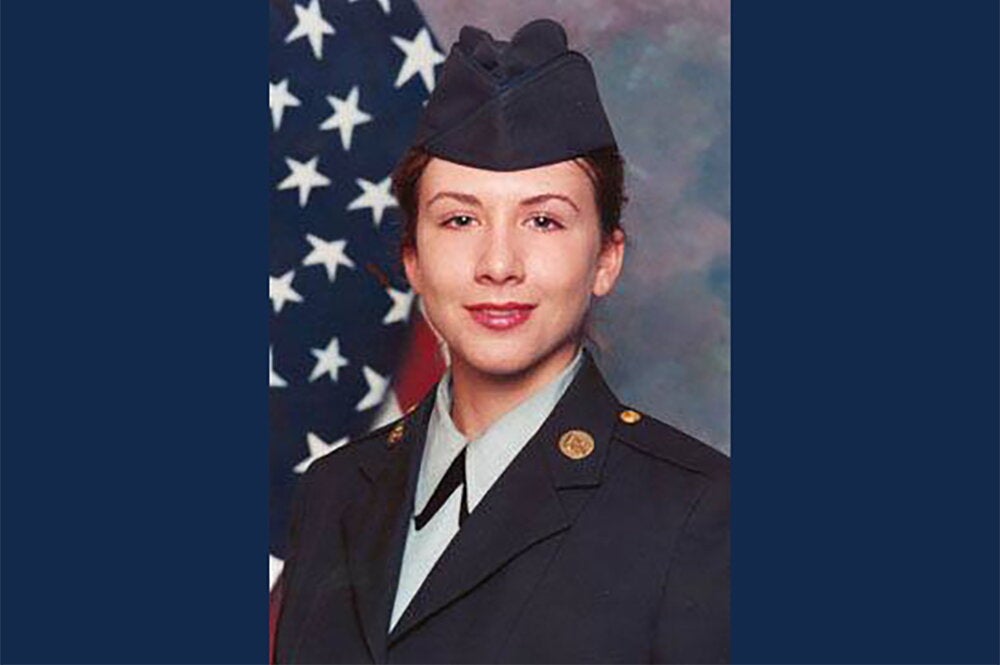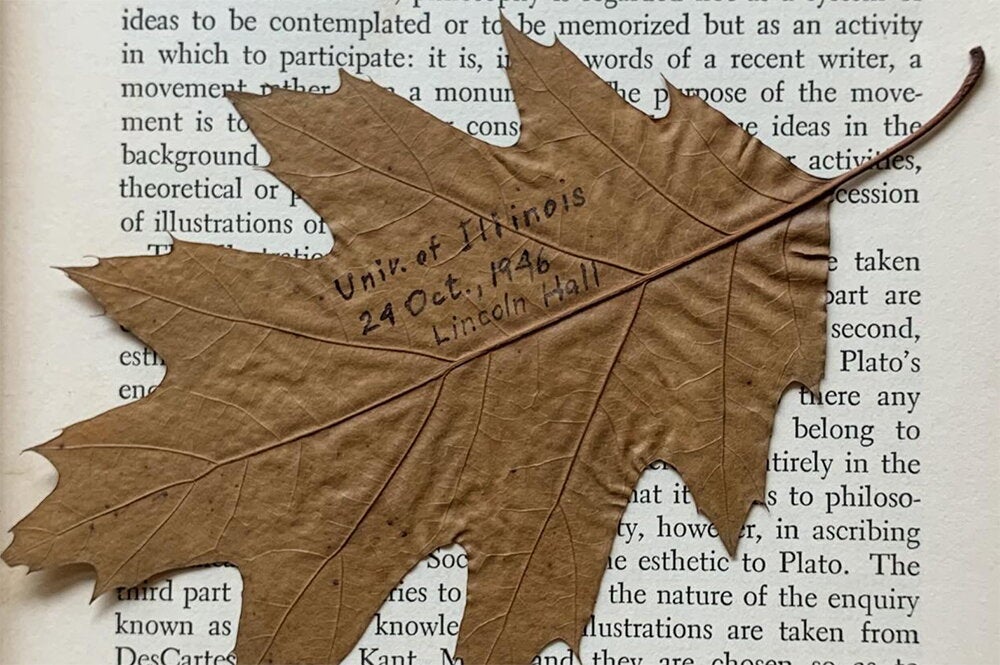

The Illinois Trial Team is unlike any other organization on campus. The 30-member team receives a case from the American Mock Trial Association (AMTA), and for one academic year they compete against other universities across the nations for who can argue the case better.
With practices two or three times a week, for three hours each time, the Trial Team takes competition very seriously. This hard work earned their Blue team (the organization is divided into an Orange, Blue, and Silver team) a spot at nationals for the past few years, and this past year they were invited to the Great American Mock Trial Invitational (GAMNTI), which is reserved for the top 30 teams in the nation.
This past year, the Illinois Trial Team also sent their Blue and Orange teams to the Open-Round Championship Series (ORCS), which was the first time in six years that they sent two teams to the next round after Regionals.
Their case this past year was an accidental shooting case where one child shot another, and the mock trial teams were arguing whether or not it was intentional, and who bore the responsibility for what happened.
The organization’s Silver team is meant for the newest members, teaching them the basics of law and mock trial. The Orange team is for the more experienced members, refining skills and working on specifics. Blue is for the most experienced members. They all pursue the same goal, however.
Each team has a defense and prosecution (or plaintiff, in the case of civil disputes) bench. Within the three teams, the students develop a defense and plaintiff/prosecution argument relative to the case. Since the case is the same nationwide, the teams compete at other universities against other mock trial teams. For example, Illinois’ Blue prosecution/plaintiff bench might argue the case against University of Wisconsin Madison’s top team’s defense bench.
Each competition takes two days of competing. The defense or prosecution/plaintiff bench will compete in the morning, and then the other goes in the afternoon. Two or three individuals act as ’judges’, and they can vary in legal experience and familiarity with the case. Some are law students, some may be coaches, and others are former mock trial competitors.
These judges have ballots where they rank the teams and determine who won that round, with teams vying for the most wins that weekend.
Based on the case, the arguments can be based on the burden of proof, types of defenses, and types of objections that can come up. In a competition, the teams don’t know what’s coming. The other team might choose a certain defense over others, and use certain witnesses offered in the case.
The attorneys prepare cross-examinations for the different possibilities of witnesses, and they must be familiar with the different objections that can come with the different types of defenses. The attorneys must also be able to argue objections against another competitor that they’ve never met before.
The witnesses also have their own characters and personalities as well, so attorneys need to be ready for things like a grieving parent or crying widow. It is also a challenge to stay in character while answering questions during cross-examination, when the competitor does not know what the attorney will ask.
The Trial Team’s president, Alex Berk, a history major who graduated in the winter 2014, talks about the feeling of a trial.
“It’s exhilarating,” he says. “A lot of people talk about mock trial as kind of being an intellectual contact sport, and that’s something that I’ve certainly learned over the years.“
Although a pre-law organization, they are not restricted to pre-law members. In fact, there are many skills that the Trial Team teaches individuals that anyone can benefit from.
Stephanie Flowers, a senior majoring in history, has been on the team for two years, serving as captain of the Blue team and the team’s vice president external. She describes how the experience on mock trial is beneficial and prepares people from all disciplines uniquely.
”How many other organizations are going to force you to be in front of real professionals and give a nine minute speech on the fly?“ she asks.
Alex says you learn to be an advocate and express ideas in a way that is understandable to other people.
“It’s distilling a complex argument into something that somebody that’s unfamiliar with case facts or unfamiliar with case laws, rules of evidence can understand,” he says. “So essentially the greatest skill that you can learn from mock trial is taking your way of thinking and altering it so somebody else can understand and see it the way you do.”
Rhett Buchmiller, a sophomore in political science and psychology, has been on the team for two years, serving as captain of the Silver team this past year. He emphasizes the importance of being able to formulate arguments in the moment.
“It definitely teaches you how to think on your feet, and it also teaches you hard work. We spend a lot of time working on the material that we present during our case, and also during the case, things happen that you don’t expect to happen,” he says. “So you have to be ready to adapt for that without any preparation at all.”
The spontaneity is part of the fun as well. The witnesses have the freedom to improvise and go off script, as long as they stay in character, stick to the facts of the case given, and they don’t make their bench look bad.
Stephanie describes when two of the witnesses on Blue improvised in a serious round at nationals. Tensions were high, and then one of their witnesses spontaneously sung a song on the witness stand. Another witness elicited laughs from the judges when she made a comment about getting food poisoning from a pork chop in her grandmother’s freezer from the Reagan administration.
“You forget that it’s an extracurricular that you’re supposed to be enjoying, and if you let the competition get too much into your head, if you don’t take every ballot, that it’s not as fun,” Stephanie says.
Through the work and fun, and after spending so much time together, it’s typical to grow close to your teammates.
“You end up respecting and loving the people that you’re competing with almost like you would your own family, because we do spend about 15 hours a week together, which is a substantial time commitment,” Alex says. “So mock trial is a big, sometimes dysfunctional, but always loving, family.”
Rhett recalls a touching moment during one of Silver’s final competitions.
“We had practiced everything about 50 times at that point, so instead we were just talking, and eventually we had this really weird heart-to-heart with the entire team,” Rhett says. “And looking back on it, it was such a weird moment, but at the time, I thought it was the greatest thing that ever happened, and that is probably something I am going to remember for a very long time.”
After three years with the organization and becoming the organization’s president, Alex found a passion for working with his teammates, imparting new concepts on the new members, and watching the individuals on the team grow.
“It’s shown me the value of teaching others and being there for other people, because you really can’t put a price on the look of happiness on someone else’s face when they understand something that you’ve been trying to explain to them for a week, a month, or a year,” he says.
“It’s just been a pleasure to get to know so many wonderful people, and see people coming with no experience on mock trial, and either leave the team or leave the season really feeling like they can express themselves, advocate for themselves, and be a successful legal professional.”


